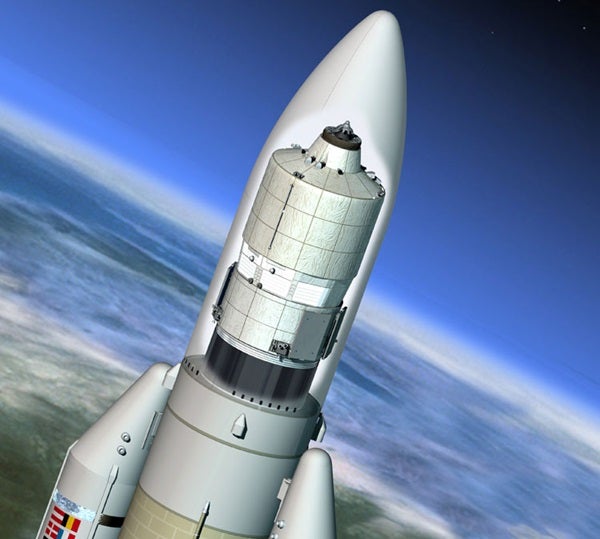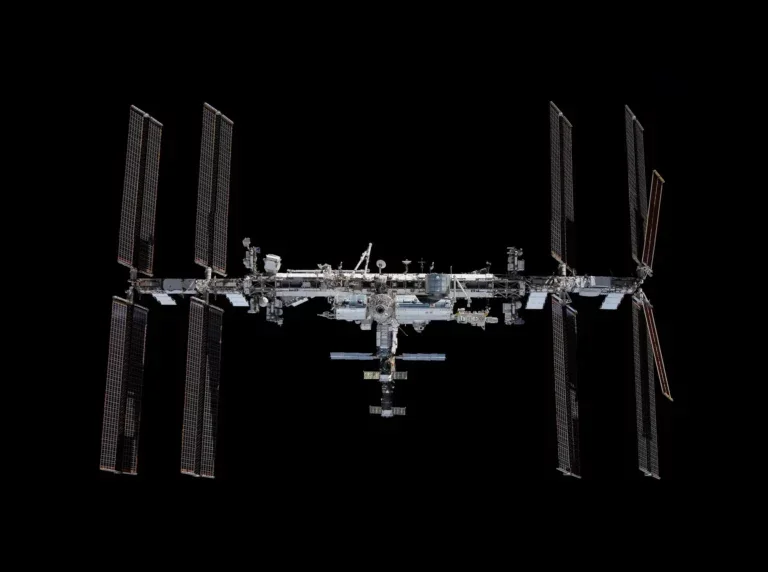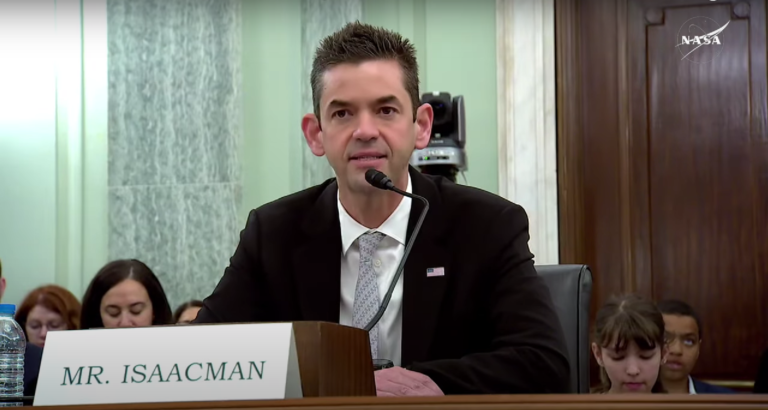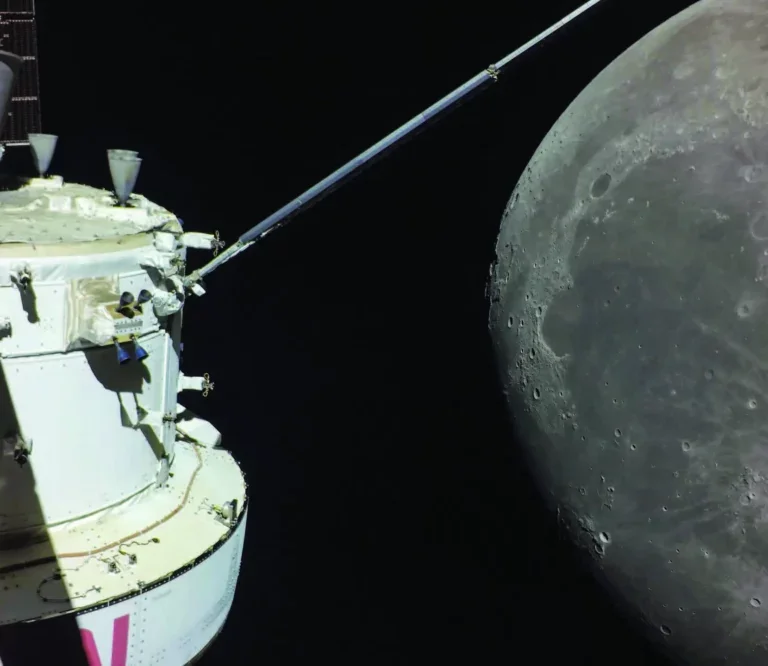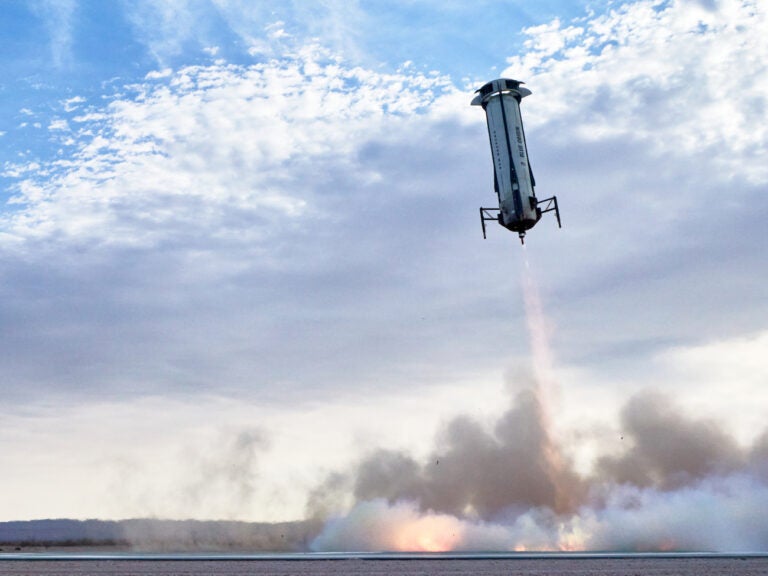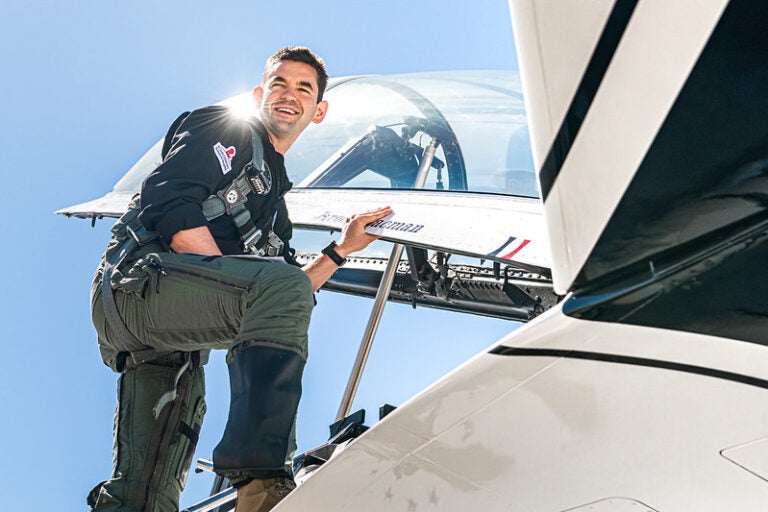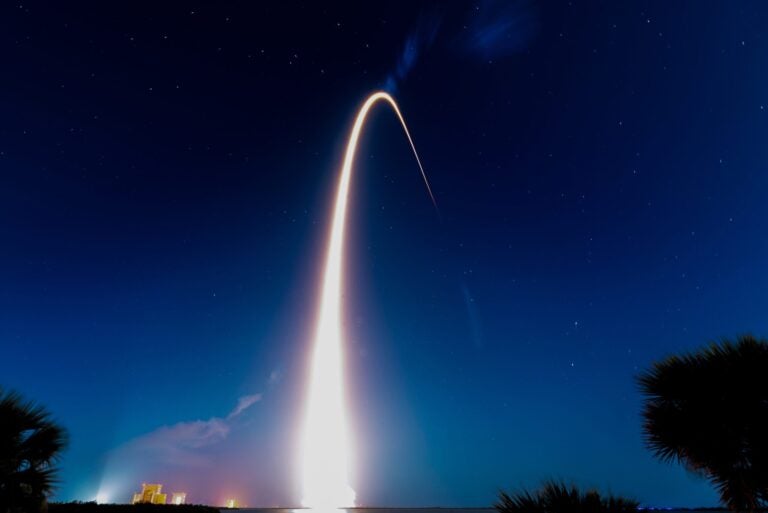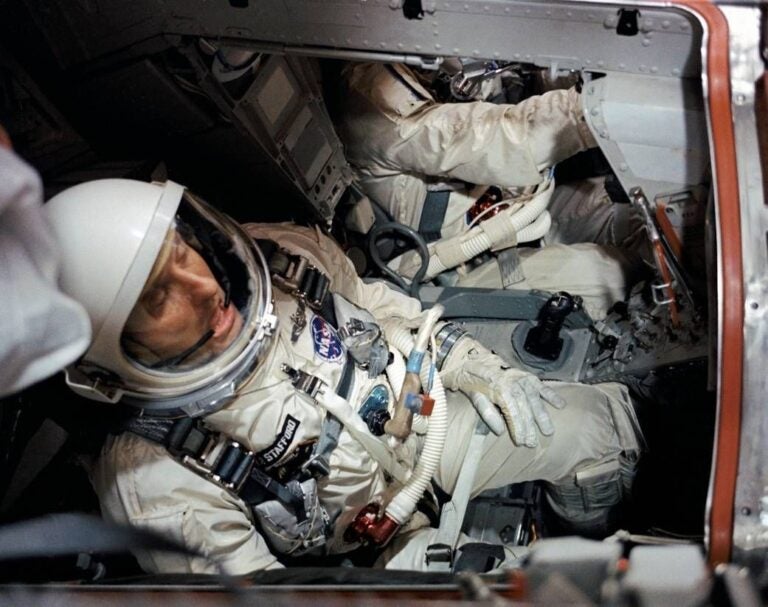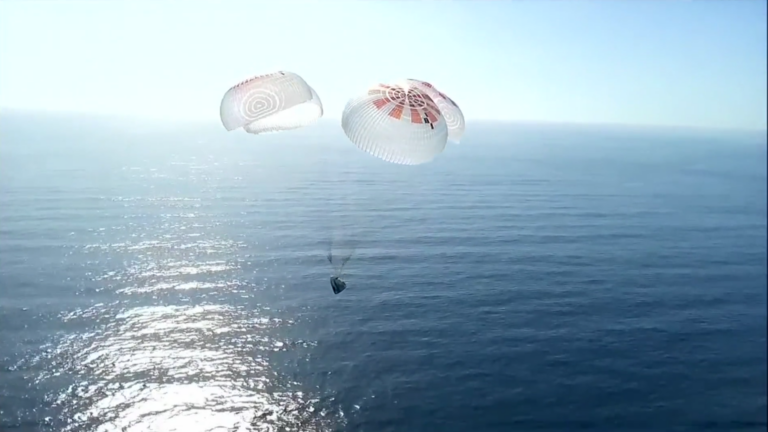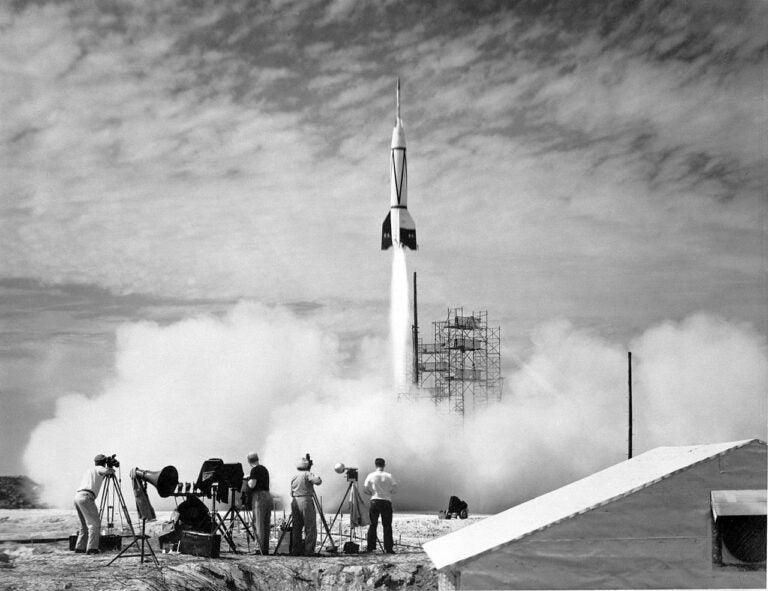Jules Verne ATV reached a parking position yesterday 2000 km ahead of the International Space Station. Europe’s ISS re-supply spacecraft will wait at this holding point for the completion of the STS-123 Space Shuttle mission before proceeding with the first of two rendezvous demonstration days.
Two boosts late last night took the Automated Transfer Vehicle (ATV) to its parking orbit at the same orbital altitude as the International Space Station (ISS). In the course of this maneuver, ATV passed just 30 km underneath the ISS.
Three smaller boosts in the course of the morning were used to adjust the spacecraft’s orbit, with Jules Verne ATV finally arriving at the parking position shortly before 1:00 CET (12:00 UT) yesterday.
ATV’s second propulsion chain was used to execute yesterday’s maneuvers and, according to Alberto Novelli, ESA’s Mission Director at the ATV Control Centre in Toulouse, France, it performed perfectly. “In doing the boosts we have tested all the pressure regulators and that worked perfectly fine. So as of today we have the proof that the propulsion system as a whole, including all the redundancies, is working fine,” says Novelli.
According to the mission schedule, ESA has also submitted an official report to the ISS partners. The report gathers together all data on the performance of Jules Verne ATV during the phasing stage of the mission since the launch from Kourou, French Guiana, ten days ago.
“We will discuss the data in a meeting with the partners on March 25. In principle that will give us the go-ahead to continue with the first rendezvous demonstration day,” explains Novelli. “As of today, this report is green and a ‘go’ from our side on all the criteria.”
Jules Verne ATV will remain in the parking orbit until March 27. The spacecraft will then be taken to a position ready to perform the two rendezvous demonstration days set for March 29 and 31.
Jules Verne ATV is scheduled to dock with the International Space Station on April 3.

